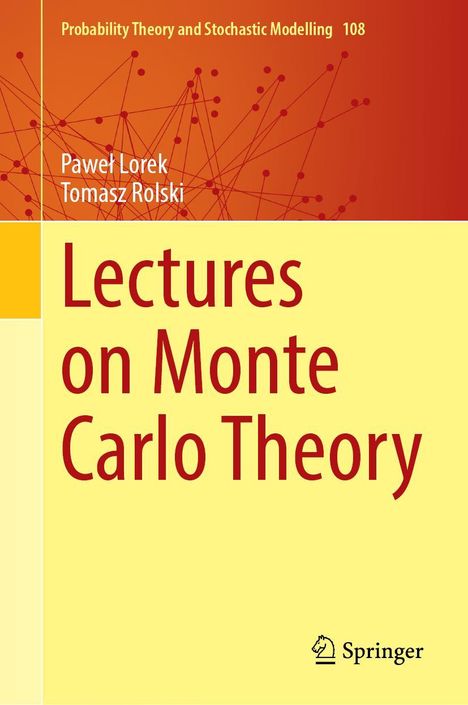Pawe¿ Lorek: Lectures on Monte Carlo Theory, Gebunden
Lectures on Monte Carlo Theory
Buch
lieferbar innerhalb 2-3 Wochen
(soweit verfügbar beim Lieferanten)
(soweit verfügbar beim Lieferanten)
Aktueller Preis: EUR 74,66
Versandkosten
(United States of America): EUR 19,90
- Verlag:
- Springer, 10/2025
- Einband:
- Gebunden
- Sprache:
- Englisch
- ISBN-13:
- 9783032011893
- Artikelnummer:
- 12335673
- Umfang:
- 648 Seiten
- Gewicht:
- 1125 g
- Maße:
- 241 x 160 mm
- Stärke:
- 41 mm
- Erscheinungstermin:
- 26.10.2025
- Hinweis
-
Achtung: Artikel ist nicht in deutscher Sprache!
Klappentext
Chapter 1. Introduction.- Chapter 2. The theory of generators.- Chapter 3. Generating random variables.- Chapter 4. Simulation Output Analysis: Independent Replications.- Chapter 5. Variance Reduction Techniques.- Chapter 6. Markov chain Monte Carlo methods.- Chapter 7. Stochastic optimization.- Chapter 8. Simulation of queues and related models.

Pawe¿ Lorek, Tomasz Rolski
Lectures on Monte Carlo Theory
Aktueller Preis: EUR 74,66
